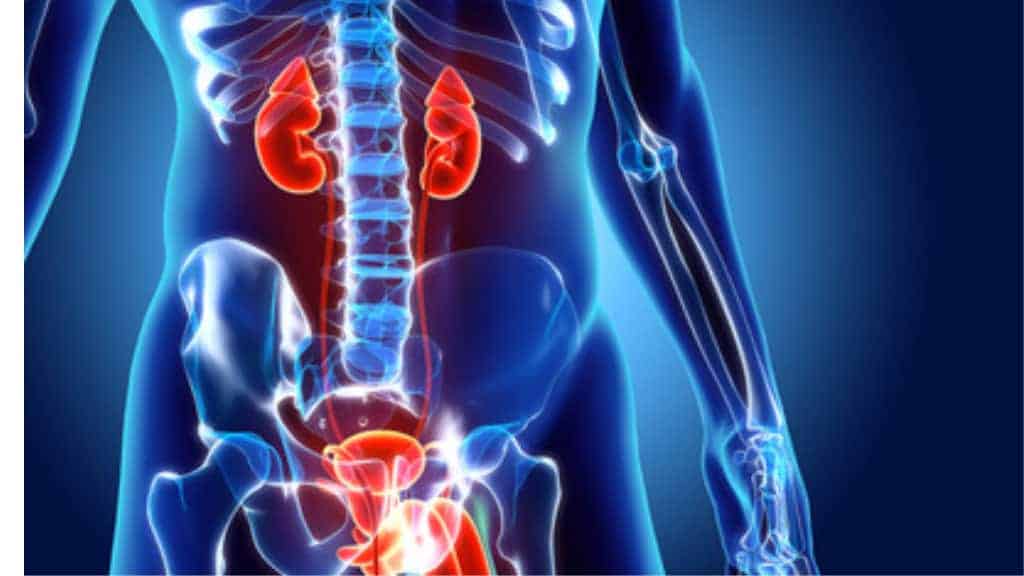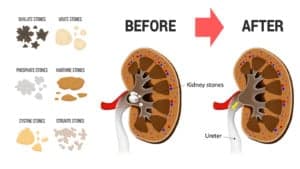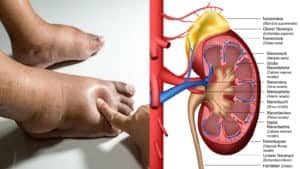You might be fascinated by some of the weird stuff the human body does. You might even think that your own body does both gross but cool things. If that is the case, you might find cloudy urine exiting your body as something that becomes oddly intriguing.
Sure, it might be interesting to see this, but cloudy urine can be indicative of some severe medical conditions. If you notice cloudy urine in the toilet more often than once, there is a problem. If you see it several days in a row, you should see your doctor right away.
Additionally, if you are experiencing pain, discomfort, fever, or other symptoms, you cannot ignore (or admire!) the cloudy urine. There is something else happening to your body in regards to the urine-making process. Here are ten conditions where cloudy urine is a primary symptom.
Cloudy Urine May Signal These Issues
1 – Kidney Infection
Kidneys can become infected just as quickly as any other part of the body. A number of different urinary infections start in the kidneys and are a result of an untreated kidney infection. The majority of a hundred thousand UTIs each year start as kidney infections.
If you experienced pain in your back, groin, or inner thighs, a fever, an upset stomach, and cloudy urine, it could be a kidney infection. When the disease is really bad, your urine will not only be dark but also have a foul smell. The pain is likely to make you double over and run screaming for your bed.
2 – Kidney Stones
Kidney stones are calcifications in the kidneys. The calcifications harden into tiny stone shards. The shards can roll around in your kidneys for years before they finally cause symptoms.
The first sign that you might have a kidney stone is cloudy urine. Some of the acid in your urine can send some of the tiny granular stone bits out with the urine. These are not stones yet, but had they stayed in your body; they might have become larger and more jagged stones.
3 – Kidney Disease
From autoimmune disorders where kidney disease is a secondary symptom to primary kidney disease where the kidneys are dying internally, it can happen. Age is not a factor since even young people can get kidney disease. Cloudy urine, bloody and cloudy urine, and foul urine smells are signs that kidney disease may be present. This is especially true if there are no accompanying symptoms indicating an infection.
4 – Cancer of the Kidneys
Cancer of the kidneys can be detected and caught soon enough to be treated. Even in later stages, a kidney replacement can deter a systemic spread of disease. Natural and homeopathic products can ease the discomfort and help detox the body before, during, and after cancer treatments.
5 – Twisted or Blocked Ureters
The ureters are these long, slender tubes that travel from your kidneys to your bladder. It is rare, but they can become twisted. They can also be blocked by stones. Most of the patients with twisted ureters never even know that they have them until they become stuck. Unblocking the ureters may also help them untwist.
Think of it this way: a large marble is inserted into a garden hose. The marble barely fits. The water forces the marble through, but the marble gets stuck. The tube begins to kink. The water cannot get through except for a trickle. Despite the force of the water behind the marble, it cannot get through because it has caused this kink in the hose. That is precisely what happens when a stone blocks a ureter, and the ureter twists up or curls. Nothing gets through except maybe a trickle until the blockage moves out of the way. Then the ureter might unkink itself, and everything returns to normal (or it might need some assistance via a minor surgery, but usually that is the last resort).
6 – Bladder Infection
Infections from the kidneys can travel into the bladder. Then the bladder becomes infected because it holds onto the urine and the infectious cells from the kidneys. Extreme pain and a constant, urgent need to urinate are the hallmarks of a bladder infection, along with cloudy urine. The worst of the worst in bladder infections will turn your urine blood red.
Drinking lots of water and urinating regularly helps alleviate bladder infection symptoms. There are also some natural herbal remedies that increase the bladder’s natural ability to fight infection. Vitamin C and highly acidic juices help, as does antimicrobial supplements. It is an excellent idea to urinate after sex (yes, every time!) as the urine will flush harmful bacteria from the bladder and urinary tract post-coitus.
7 – Bladder Cancer
Bladder cancer affects a small percentage of people annually, yet it ranks sixth highest in the list of diseases contracted. Men are far more likely than women to develop bladder cancer and far more likely to die of it. Reproductive structures related to male bladders play a part in the development of bladder cancer in men.
Bladder cancer is a very silent and deadly disease. With the exception of the presentation of cloudy or bloody urine, you might not even know you have it. The sad part is, by the time you see funky urine in the toilet bowl, cancer has grown to a stage beyond level one. If you notice your weird urine sooner, and you take the time to have it checked out, it could be the best life-saving thing you would have ever done for yourself.
8 – Prostate Cancer or Enlarged Pre-Cancerous Prostate
Benign prostatic hyperplasia is a complicated way of saying noncancerous enlarged prostate. While it is treatable, it does cause men to urinate more frequently, and cloudy urine is frequent. That is because an enlarged prostate can push sperm and seminal fluid up into the bladder and make the urine cloudy.
Likewise, prostate cancer does the same thing to the bladder. The big thing here is that prostate cancer can spread to the bladder. Keeping an eye on the prostate and checking it often is a good idea. However, there are other things you can do, like drinking coffee daily, that can reduce the size of the prostate, decrease prostate cancer risks, and decrease inflammation.
9 – Urinary Tract Infections
At the very end of the urinary system is the urinary tract. After the urine travels through the ureters from the kidneys, and then from the ureters to the bladder, urine is expelled through the urinary tract. Everything from intimate sexual encounters to wiping the wrong direction can push bacteria into the urinary tract and cause an infection. (This is why urinating after sex is so important!)
Cranberry juice and a steady diet of yogurt can turn a tract infection around. The acidity of the cranberry juice (100%, not cocktail) kills bacteria in the tract and restores the PH balance of urine. The yogurt prevents bacterial growth.
10 – Diabetes
Although diabetes is not directly related to the kidneys and urinary system, excess protein and sugar are dumped in the urine. A lot of protein makes urine look cloudy, while the sugar makes the urine sharply sweet in odor. Mothers checked for gestational diabetes often have to do a dip-stick test to check for protein dumping, an indication that gestational diabetes is present.
If you are not aware of any diabetes diagnosis in yourself, a simple test strip can reveal it. In some cases, these test strips show pre-diabetes, meaning that it is not too late to turn back the clock on this disease. Diet and certain supplements can slow the progression of diabetes and sometimes even reverse it.
Final Thoughts on What Cloudy Urine Means to Your Health
While seeing cloudy urine in your toilet bowl may be intriguing or fascinating to you, you should not allow your fascination to get in the way of your health. Preventing cloudy urine and the medical conditions that cause it are best, but treating it after the fact is equally important. Finding out what the problem is early on helps.
Most kidney and urinary system problems can be addressed with supplements, diet, and care. You can manage these issues from home without having to use harsh antibiotics or prescription medications. Visiting with a holistic or natural health practitioner will give you some ideas of what you can do to keep your urinary system healthy.
When you continue to experience health problems and symptoms that refuse to subside, it might be something more life-threatening. It helps to consult with a doctor and let him/her know everything you have been doing to stave off infections and diseases. Tests run on urine, and blood samples can detect more serious medical conditions. Then you can discuss with your doctor (or doctors) what you should do next about what is happening with your kidneys and urinary system.























